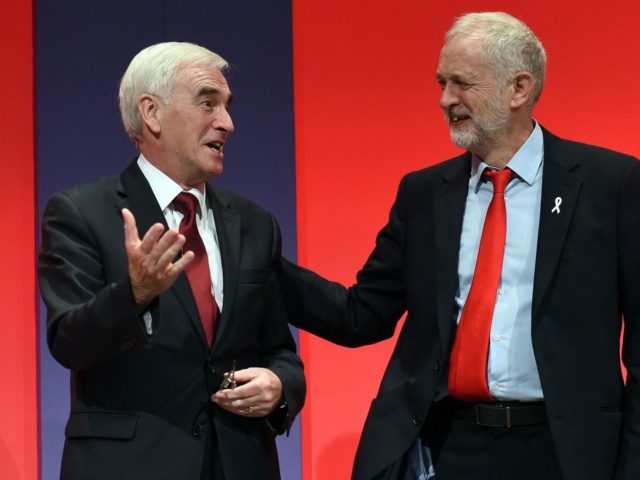The Labour party’s shadow Brexit Secretary and Chancellor have said the party is open to a so-called ‘soft-Brexit’ with the UK still locked inside the European Union’s (EU) Single Market.
The comments come the day after Labour’s Shadow International Trade Secretary gave his clear, unconditional commitment to leaving the single market, insisting anything less than a so-called ‘Hard Brexit’ would be “considered a con” by the voting public.
However, shadow Brexit secretary Sir Keir Starmer and Shadow Chancellor John McDonnell have now hit back, insisting no options are taken off the table in relation to the Single Market and the Customs Union.
There has been on-going confusion about the party’s position on Brexit, and the contradicting statement will do little answer questions other than exposing division in Labour’s upper ranks.
The Labour manifesto was similarly unclear, saying that the party wanted to keep the “benefits of the single market” without explaining how.
The EU’s Brexit negotiators have insisted Single Market membership must include free movement and open borders, and remaining in the Customs Union would leave the UK unable to form it’s own trade deals.
Where are @UKLabour at with #Brexit? Shadow Trade Sec @BarryGardiner answers @skynewsniall #Ridge pic.twitter.com/oUraEyn2NF
— Ridge on Sunday (@RidgeOnSunday) July 23, 2017
Speaking at a Labour in the City event, Sir Keir said: “Labour’s objective is tariff-free access to the single market, no new red tape at customs and a deal that works for services as well as goods. It is vital that we retain the benefits of the single market and the customs union.
“How we achieve that is secondary to the outcome and should be part of the negotiations. We need to be flexible in our approach and not sweep options off the table.”
Meanwhile, Mr. McDonnell told the BBC: “Our objective is tariff-free access to the market. That has been our objective since immediately after the referendum. The structures – whether we are in or out – are a secondary matter.
“We are not ruling anything out but what we are saying is that we are the fifth largest economy in the world and we have a special status in both our relationship with the EU and the rest of the globe and we feel we can get a deal that achieves tariff-free access.”
However, Shadow International Trade Secretary Barry Gardiner bluntly contradicted them, writing in the Guardian the day before:
“Brexit arose from key political, rather than trade, objectives: to have control over our borders, to have sovereignty over our laws, not to submit to the European Court of Justice (ECJ), and not to pay money into the European budget,” he began.
Adding: “I campaigned to stay in the EU, but as a democratic politician, I have to recognise that these objectives provide the benchmarks by which Leave voters will judge the future trade relations we negotiate with the EU.”

COMMENTS
Please let us know if you're having issues with commenting.